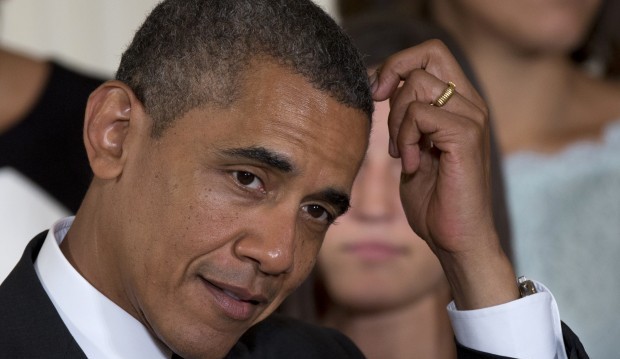The following lines will not be an attempt for me to tell somebody’s fortune or do the work of a psychologist. Yet, it is an attempt to rate US President Barack Obama’s character and the way he makes political decisions in general, including the decision to launch a military strike against the Syrian President Bashar Al-Assad’s regime, following the horrible massacre he committed against his own people in which nearly 2,000 people were killed or injured, the majority being children, as everyone knows.
Obama came to power after a president who embroiled the US in two wars without a clear objective, exhausting much of America’s financial resources. In fact, these two wars contributed to an unprecedentedly grave financial crisis that entangled the entire world, not to mention the human causalities endured by the US armed forces. Therefore, Obama was always keen to repeatedly say that he will be the president who will end America’s involvement in Iraq and Afghanistan and that he will not get the country into any new wars.
Furthermore, there are influential political circles around President Obama that keep telling him that the Middle East region is no longer important to the US and that less than 24 percent of its oil come from that region—an average they say is likely to decrease owing to the existence of shale oil and other alternative resources. The political circles around Obama argue that the problem must be with China, for it relies greatly on the Middle East’s oil, and so it must have clear and important interests there. Therefore, for those circles, now Obama must not handle or view the issue as critically important.
However, President Obama had made a big political promise that using chemical weapons is a “red line” and he will not allow anyone to cross it. So, the case now is the stature and credibility of America’s leadership of the world. This is because should Obama not react forcefully, it would be a highly significant message to rogue states across the world that they were free to cross red lines without retribution, or the deterrence would be limited and bearable.
The hesitation of the decision-makers in the US seems clear, as such hesitation occurred when handling an oppressive, blood-thirsty and a tyrannical regime that is theoretically backed by America’s rivals. It is not really difficult to convince others of the case, especially in view of the evidence, proofs and eyewitnesses that all testify to the al-Assad regime’s use of chemical weapons to kill its own people, and not for the first time.
The world is anticipating America’s decision and reaction to Assad crossing the red line it had drawn for him and to exhibiting indifference to its threat. Now, America’s stature is placed on that red line, and so any tremor in America’s world stature could impact on its huge interests there. This also means that the US does not think about the victims of the Assad regime or of the Syrian revolution and its course in this particular moment, but only of how the Assad regime dared to challenge the US and to cross the redline it had drawn for it.
Barack Obama is a cautious and hesitant academic who always wishes to gain the satisfaction of everyone, a mission that seems almost impossible to achieve. However, an American politician concerned with national security is concerned about the delay in producing a “decisive” reaction against a regime that insulted his country’s leadership by scorning a clear red line it had drawn for it. As I said, this is an attempt to know how Obama thinks, and days will show us practically how the man will react.
